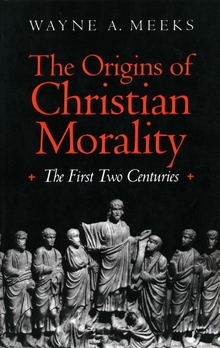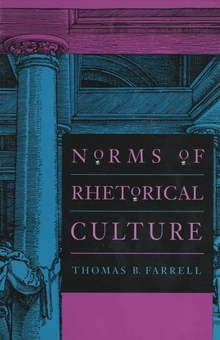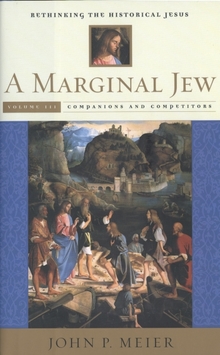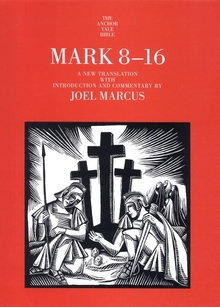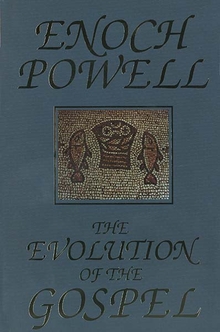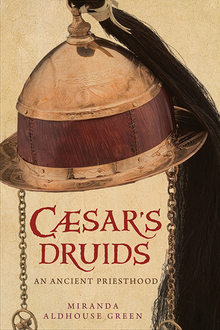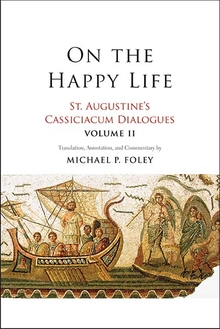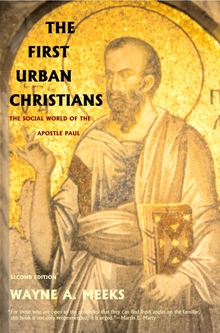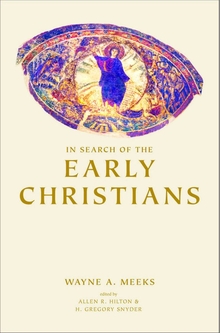The Origins of Christian Morality
WARNING
You are viewing an older version of the Yalebooks website. Please visit out new website with more updated information and a better user experience: https://www.yalebooks.com
The First Two Centuries
Wayne A. Meeks
Wayne A. Meeks examines the surviving documents from Christianity's beginnings (some of which became the New Testament) and shows that they are largely concerned with the way converts to the movement should behave. Meeks finds that for these Christians, the formation of morals means the formation of community; the documents are addressed not to individuals but to groups, and they have among their primary aims the maintenance and growth of these groups. Meeks paints a picture of the process of socialization that produced the early forms of Christian morality, discussing many factors that made the Christians feel that they were a single and "chosen" people. He describes, for example, the impact of conversion; the rapid spread of Christian household cult-associations in the cities of the Roman Empire; the language of Christian moral discourse as revealed in letters, testaments, and "moral stories"; the rituals, meetings, and institutionalization of charity; the Christians' feelings about celibacy, sex, and gender roles; and their sense of the end-time and final judgment. In each of these areas Meeks seeks to determine what is distinctive about the Christian viewpoint and what is similar to the moral components of Greco-Roman or Jewish thought.
"In its sensitivity to the setting of early Christian moral discourse, its sophistication about contemporary moral theory, and especially its contention that making morals and making community are one and the same, Meeks new study is historically illuminating and theologically provocative. Even the most individualistic sections of the New Testament look different under Meeks penetrating gaze. In this book Meeks remains very much the New Testament scholar and historian, yet he writes, gracefully and insightfully, with an eye focused as much on current debates as on the ancient texts."—Robert L. Wilken, University of Virginia
"In a vigorous historical analysis, Meeks offers new perspectives on the early days of Christian morality. . . . Learned and lucid: an important piece of sociohistorical research."—Kirkus Reviews
"An absorbing and groundbreaking study of early Christian moral discourse. Meeks not only places the ancient texts in their specific cultural and religious settings but also calls on contemporary philosophical discussion to illuminate features of the emerging Christian moral vision. . . . [It] should be a standard for many years."—Choice
"Fresh and original. . . . An enjoyable book, underpinned by considerable erudition which is tactfully tucked away."—Henry Chadwick, Times Literary Supplement
"[Meeks writes] with humanity and generous sympathy for his subject. . . . He has written an enjoyable book, underpinned by considerable erudition."—Henry Chadwick, Times Literary Supplement
"A first class book. . . . A mine of information for the person trying to get some correct insight into 'the making of moral theology' from its earliest years."—James A. O'Donohoe, Theological Studies
"Wayne Meeks has produced another gem. . . . This book introduces readers to real Christians of the first two centuries and to the complex, often inherently contradictory, moral world that they inhabited. Meeks's engaging style, almost that of a fireside chat, eschews overly theoretical and systematic conclusions in favor of careful descriptions of what and how these Christians thought about themselves and their world."—Barbara E. Bowe, Cross Currents
"For those interested in the historical study of Christianity, the sociology of morals, and religious studies more generally, this learned and highly suggestive work will constitute essential reading."—Joseph M. Bryant, Sociology of Religion
"Enlightening. . . . I recommend this wonderful book for both the clarity of its prose and its plan execution; for the fruitfulness of its reading of texts; and for the utility of its conclusions."—Lawrence S. Cunningham, Commonweal
"We can only be grateful for the model of exploration which Meeks has established. He has formed a carefully conceived project and executed this preliminary survey with consummate elegance; his work undoubtedly points the way forward for the next generation of research."—John M. G. Barclay, Modern Theology
"Meeks displays his mastery of his subject as befits a seasoned scholar whose work on the social history of early Christianity has been so important to scholars of New Testament and Christian origins. His chapters make for an engaging read.'"—Elizabeth Clark, Church History
"Each [chapter] is highly readable, and enough secondary information is supplied to provide direction for further inquiry . . .This is a book which will be read profitably by those interested in the past as well as those interested in the present."—Richard S. Ascough, Churchman
"This thoughtful ethnography of early Christian moral beginnings is a groundbreaking work, replete with flashes of insight. It can be read with profit and pleasure by specialists and the general reading public."—James E. Seaver, History
"Meeks has written a rich and wise description born of his life work on early Christianity. . . . Highly readable, The Origins of Christian Morality should be of aid and enjoyment to clergy and all others with interest in how the diverse early Christian communities formed themselves a s a distinct moral and religious community."—Timothy F. Sedgwick, The Living Church
"This reflective, logically and coherently argued book seeks to identify the origins of Christian morality of the first two centuries. . . . This is an important and valuable contribution to the study of early Christianity."—Demetrios J. Constantelos, Classical World
"For a subtle, integrated and coherent description of the ethics of the early Church, there is no book that is more illuminating or more convincing."—John Muddiman, Biblical Interpretation
"Because Meeks makes his arguments softly and in graceful and gracious prose, one can sometimes fail to grasp the originality and the power of his ideas as they unfold. . . . Indeed, as Meeks proceeds, we see that morality, community, conversion, and Christianity are inseparable. While this does not surprise a sociology, it lights up the history of Christian morality in quite remarkable ways. Meeks has written a splendid work of lasting value."—Rodney Stark, University of Washington American Historical Review
"This thoroughly readable book is a considerable contribution to understanding those processes during the first two centuries by which Christian morality came to its distinctive shape and content. . . . While it is a must for all institutions and libraries concerned with scholarship in the field of early Christianity, Meek's book will also enrich local churches' study-groups."—Peter Doble, Theological Book Review
"The book originated in a series of Speaker's lectures delivered in Oxford in 1990 and 1991 and as such were addressed to a general audience rather than an in-group of specialists, though specialists reading this book (and they should) would find it profoundly scholarly. . . . This admirable book will inform the reader fully on just what it is that should be reassessed."—Gillian Mottram, Faith & Freedom
"This is an important and in many ways a seminal contribution. Meeks provides an ethnography of Christian beginnings, listening to the language of early Christians as they speak about morality and attempting to make sense of it within its specific cultural settings."—Carl Holladay, Emory University
Publication Date: September 27, 1995

